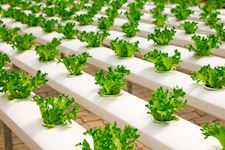Hydroponics Online Diploma
Hydroponics Diploma
Elearn College
Summary
- Certificate of completion - Free
Add to basket or enquire
Overview
If you have some general interest in horticulture and want to take that interest to an innovative level and a thriving career, then this course is an excellent choice for you. Sign up now, and cultivate your existing knowledge to better understand how modern technology is applied to growing plants.
Why should I enroll onto this course?
A fun-filled, self-paced program that is organized into an easy-to-digest module that promises to teach you the scientific art of cultivating gardens and garden plants. Enjoy the valuable benefits of this flexible course without compromising with your current commitments.
Course media
Description
Hydroponics is the world’s biggest business and the demand for job opportunities is enormous. It is predicted there will be a need for 50,000 additional agricultural professionals in this industry over the next 5-10 years. Demand for professionals will exceed the supply. Whether your interest in agriculture is hobby based or you\’re looking for more formal qualifications such as certificates, advanced certificates, diplomas, and advanced diplomas there is a course for you. Now is the time to train for a career in agriculture.
Many of us may not realize that hydroponics is not a modern invention – growing plants without soil sounds rather ingenious after all. But it all started a very long time ago, during the last Babylonian empire, where Nebuchadnezzar’s ‘hanging gardens’ (or terraces) became renowned as one of the Seven Wonders of the World.
Although hydroponics is not a contemporary innovation, it is only since the 1930s that large crops have begun to be grown by this method. The plants are cultivated in solutions of mineral salts – giving hydroponics its other name: aquaculture. Aquaculture involves the culture of aquatic organisms (such as crustaceans and fish) for commercial purposes under partly controlled conditions.
Could this mean that we could eventually become less reliant on the soil to grow our food, and, paradoxically, less reliant on water too? This is because the water used in hydroponics can be re-used, and the overall quantity of water utilized is less than would be needed to irrigate soil-grown crops.
Who is this course for?
This course is suitable for anyone having an interest in Hydroponics
Requirements
There are no entry requirements. No background training or qualifications are required. Anyone can enroll at any time, beginners, intermediates and experienced all year round.
Career path
Hydroponics is the science of growing plants without soil. A person who grows plants delivers the water and nutrients directly to the roots of the plant. Because of the lack of soil, a grower using hydroponics has better control over nutrients. When applied correctly, hydroponic growth often leads to greater yields and larger plants.
Questions and answers
Currently there are no Q&As for this course. Be the first to ask a question.
Certificates
Certificate of completion
Digital certificate - Included
Reviews
Legal information
This course is advertised on reed.co.uk by the Course Provider, whose terms and conditions apply. Purchases are made directly from the Course Provider, and as such, content and materials are supplied by the Course Provider directly. Reed is acting as agent and not reseller in relation to this course. Reed's only responsibility is to facilitate your payment for the course. It is your responsibility to review and agree to the Course Provider's terms and conditions and satisfy yourself as to the suitability of the course you intend to purchase. Reed will not have any responsibility for the content of the course and/or associated materials.


